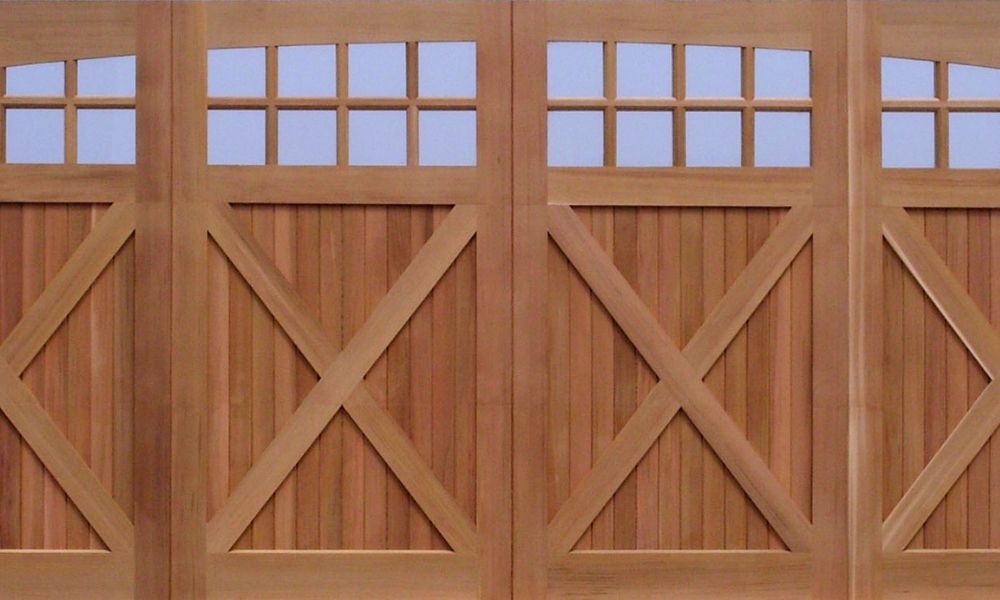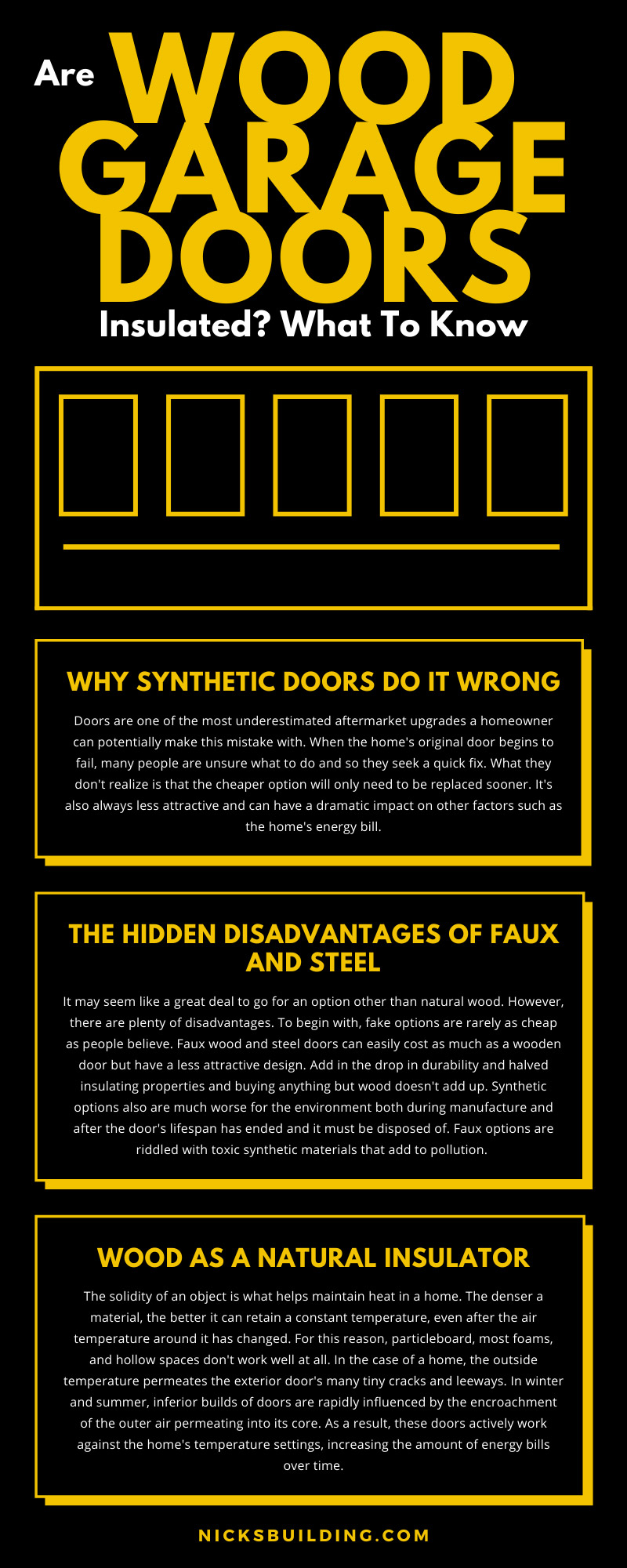Consumers today are both blessed and cursed with too many options. It’s especially a shame when it comes to the necessities such as the increased availability of mass-produced and low-quality building materials. As homeowners, we’re often familiar with the process of adding insulation to walls and spaces around the house. As such, it’s natural to wonder are wood garage doors insulated? What to know about keeping a garage’s temperature under control is less complicated than people may realize. It doesn’t take extra insulation to make a garage comfortable so much as choosing the best material from the start.
Why Synthetic Doors Do it Wrong
The average consumer has been falsely led to believe that second-best is just as good in every case. While that’s true with many small everyday items, it isn’t uniformly so. When it comes to building materials, selecting second-best can cut years off of a home’s longevity. This is because cheaper materials have distinctly lower quality and are almost always more prone to weathering and wear.
Doors are one of the most underestimated aftermarket upgrades a homeowner can potentially make this mistake with. When the home’s original door begins to fail, many people are unsure what to do and so they seek a quick fix. What they don’t realize is that the cheaper option will only need to be replaced sooner. It’s also always less attractive and can have a dramatic impact on other factors such as the home’s energy bill.
Anyone wondering are wood doors insulated need only look at the quality drop in the alternatives. What to know starts with a look at the difference in build quality versus craftsmanship with real materials. Cheaper doors typically come in two varieties. At the local hardware store, consumers can choose between chipboard core or hollow core steel doors. Both options are somewhat less expensive upfront than an actual solid wood door. However, they are much less effective, especially in managing a home’s insulating qualities. To begin with, the chipboard has virtually zero insulating qualities as it lacks the ability of solid wood to retain a constant temperature.
Steel doors with a hollow core are even worse. As they adjust to the temperature outside, they create a burning hot or freezing cold pocket of air that disrupts a home’s ability to balance its internal temperature. Sometimes steel doors are filled with plastic-based filler to act as insulation. It’s a more effective hollow door, but not by much. Homeowners will need to maintain a careful and continuous upkeep routine to ensure zero moisture ever gains access. If moisture does get in, steel doors are subject to rust and will rot from the inside out.
The Hidden Disadvantages of Faux and Steel
It may seem like a great deal to go for an option other than natural wood. However, there are plenty of disadvantages. To begin with, fake options are rarely as cheap as people believe. Faux wood and steel doors can easily cost as much as a wooden door but have a less attractive design. Add in the drop in durability and halved insulating properties and buying anything but wood doesn’t add up. Synthetic options also are much worse for the environment both during manufacture and after the door’s lifespan has ended and it must be disposed of. Faux options are riddled with toxic synthetic materials that add to pollution.
On the other hand, our solid wood doors are harvested from responsibly grown US local wood species and contain no added contaminants. What’s more, the real cast iron and brass fixtures are easily reclaimed if necessary. Wood doors easily last a lifetime and need very little care. On the other hand, steel doors require specialty finishes since water-based house paints will cause them to rust sooner. Other doors with composite components can’t handle the weather over the years, making it very difficult to defend them against the elements. If there are any weathered spots on wood doors, they show up easily, making wooden doors much easier to maintain.
Wood as a Natural Insulator
The solidity of an object is what helps maintain heat in a home. The denser a material, the better it can retain a constant temperature, even after the air temperature around it has changed. For this reason, particleboard, most foams, and hollow spaces don’t work well at all. In the case of a home, the outside temperature permeates the exterior door’s many tiny cracks and leeways. In winter and summer, inferior builds of doors are rapidly influenced by the encroachment of the outer air permeating into its core. As a result, these doors actively work against the home’s temperature settings, increasing the amount of energy bills over time.
Solid wood garage doors work for the same reason the wood of the house itself works so well. The denser the thermal mass of a structure, the more likely it will retain a constant temperature throughout. Hardwoods are, of course, naturally dense and durable. Simply installing a solid wood door does a much better job at contributing to a home’s collective thermal mass than any artificial insulation. What’s more, many wood species have other natural attributes that contribute to a home’s defense against the elements. Species that are rich in minerals and oils are significantly more durable and need less refinishing. It’s for this reason teaks and alders are commonly used for exterior doors, patio furniture, and even shipbuilding.
Other woods contain wonderful aromatic oils that serve a more critical role than tantalizing our senses. Cedar wood’s amazing scent comes from naturally present oils whose insecticidal properties have been known for generations. Oak and cedar are both especially effective options in areas where burrowing insects are especially troublesome. Not only does solid wood insulate a home from the harsh conditions outside, but it can also protect a house and its family from high energy costs and destructive insects—qualities no other door materials can even begin to compete with.


